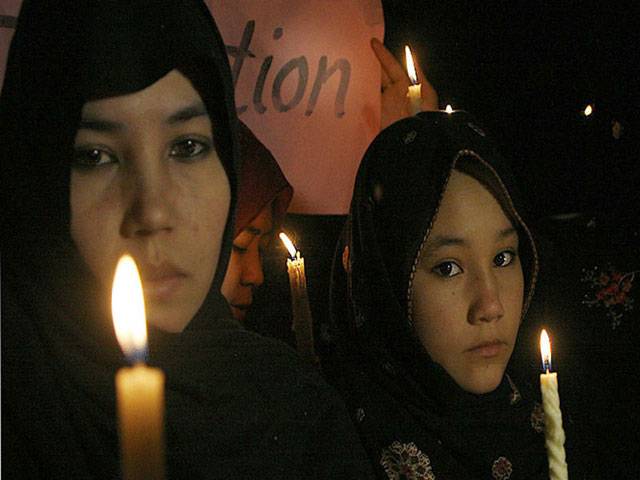NEW YORK - Human Rights Watch, a prominent international watchdog body, Monday urged Pakistani government to take all necessary measures to stop extremist groups in Balochistan from committing further killings and other abuses against Hazara and other Shias.
The call was made in a 62-page report, “‘We are the Walking Dead’: Killings of Shia Hazaras in Balochistan, Pakistan,” which documents Sunni militant group attacks on the mostly Hazara community in Balochistan. Since 2008, several hundreds of Hazara have been killed in steadily worsening targeted violence, including two bombings in Quetta in January and February 2013 that killed at least 180 people.
“Sunni extremists have targeted Hazara with guns and bombs while they participate in religious processions, pray in mosques, travel to work, or just go about daily life,” Brad Adams, HRW's Asia director, said in a statement. “There is no travel route, no shopping trip, no school run, no work commute that is safe for the Hazara. The government’s failure to put an end to these attacks is as shocking as it is unacceptable.”
The ongoing attacks have meant that the half-million members of the Hazara community in Quetta live in fear, compelled to restrict their movements, leading to economic hardship and curtailed access to education and employment, HRW said, adding this ‘oppressive’ situation had prompted large numbers of Hazara to flee Pakistan for refuge in other countries.
Human Rights Watch interviewed more than 100 survivors, members of victims’ families, law enforcement, security officials, and independent experts for the report, it said.
Since 2008, according to the report, Pakistan’s Shia Muslim community has been the target of an unprecedented escalation in sectarian violence as militants have killed thousands across the country. The Lashkar-e-Jhangvi (LeJ), group has claimed responsibility for most attacks, yet many of its leaders continue to play command and leadership roles and avoid prosecution or otherwise evade accountability, it said. A number of convicted high-profile LeJ militants and suspects in custody have escaped from military and civilian detention in circumstances the authorities have been unable to explain, the report said.
Tuesday, April 16, 2024
Pakistan urged to check sectarian hits

Caption: Pakistan urged to check sectarian hits
3:25 PM | April 16, 2024
1:17 PM | April 16, 2024
IHC dismisses Bushra Bibi's plea seeking her shifting to Adiala Jail from Bani Gala
4:25 PM | April 16, 2024
Punjab CM visits Tehsil Headquarter Hospital Murree
3:25 PM | April 16, 2024
High-level Saudi delegation in Islamabad to hold meetings with Pakistani leadership
2:07 PM | April 16, 2024
Saudi foreign minister meets PM Shehbaz Sharif
1:17 PM | April 16, 2024
Decision to retaliate against Iran attacks rests with Israel, says Pentagon
1:05 PM | April 16, 2024
Political Reconciliation
April 16, 2024
Pricing Pressures
April 16, 2024
Western Hypocrisy
April 16, 2024
Policing Reforms
April 15, 2024
Storm Safety
April 15, 2024
Democratic harmony
April 16, 2024
Digital dilemma
April 16, 2024
Classroom crisis
April 16, 2024
Bridging gaps
April 16, 2024
Suicide awareness
April 15, 2024
ePaper - Nawaiwaqt
Advertisement
Nawaiwaqt Group | Copyright © 2024





